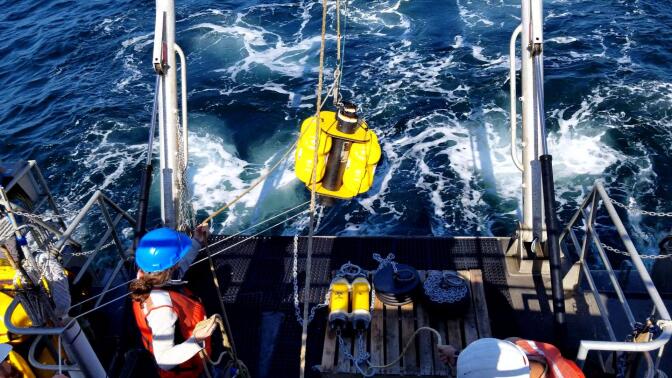The ocean near Los Angeles has gotten much louder since big ships showed up, particularly in the Santa Barbara Channel, a regular thoroughfare for vessels trafficking the ports of L.A. and Long Beach. And that has made it far more difficult for whales to communicate.
That's according to a new study that used modeling to estimate underwater noise has increased by about 15 decibels over preindustrial levels 100 feet below the ocean's surface, or the transiting depth of some whales.
"We found that the soundscape was about 30 times higher in acoustic intensity, than it was in preindustrial times," said Vanessa ZoBell, the lead author of the study and a postdoctoral researcher at the Scripps Whale Acoustics Lab.
ZoBell compared it to being in the middle of a concert and trying to talk to your friends with music playing and people cheering. All the sound is going to drown out your conversation.
"That's kind of what the blue whales are experiencing in the Santa Barbara Channel. They're trying to say, 'Hey, there's a big bunch of krill over here. Come over here.' But when there's ships in the area, they can't really use sound as well for communication," she said.

Anthropogenic noise can have all sorts of harmful affects on sea life, and the Santa Barbara Channel is a hub of biodiversity. The Channel Islands National Marine Sanctuary is there, with vast kelp forests, fish, invertebrates and endangered Northeast Pacific blue whales that swing by to eat.
Whales use sound to communicate over vast distances, forage for food and navigate the mostly pitch black deep sea. A whole bunch of ship noise can interfere, affecting their ability to communicate, feed and influence their migratory patterns. It's also been linked to chronic stress in whales.

There have been efforts to address the issue, including with a program called Protecting Blue Whales and Blue Skies, which encourages ships to slow their speed to below 10 knots to dampen sound and lessen the amount of fuel used.









